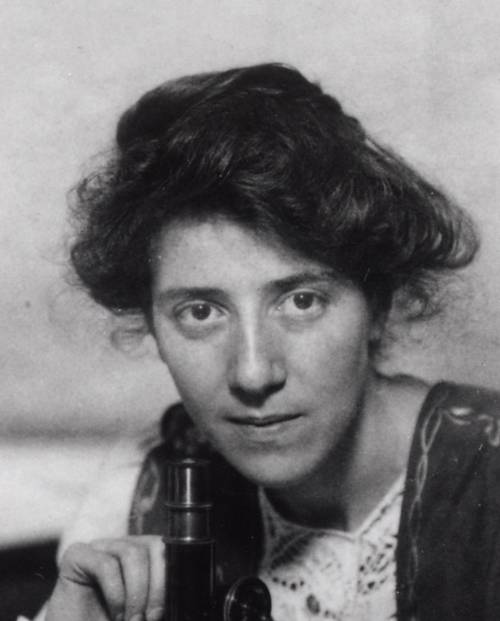
FAQ About Marie Stopes

Who was Marie Stopes?
Marie Stopes was a pioneering British scientist, author, and a fervent advocate for birth control and women's reproductive rights. Born in 1880, she was influential in the early 20th century, helping to establish birth control clinics and providing comprehensive education and services related to family planning.

What are some of the notable works of Marie Stopes?
Marie Stopes authored several influential works, including "Married Love" (1918), which discussed sexual relations in marriage and "Wise Parenthood" (1918), which offered guidance on contraception and family planning. These works were groundbreaking for their frank discussion of topics that were considered taboo at the time.

What was the impact of Marie Stopes' book 'Married Love'?
Published in 1918, "Married Love" was revolutionary in its approach to addressing sexual relations within marriage. It became an international bestseller, raising awareness and changing public perception about sexual health and relationships. This book contributed significantly to the dialogue surrounding women's rights and family planning.

When did Marie Stopes establish her first birth control clinic?
Marie Stopes established her first birth control clinic in 1921. Known as the Mothers' Clinic for Birth Control in London, it was the first of its kind in the UK to offer contraceptive advice and services, marking a significant step forward in reproductive health care for women.

How did Marie Stopes contribute to women's reproductive rights?
Marie Stopes played a crucial role in advancing women's reproductive rights through her advocacy, writings, and the establishment of birth control clinics. She emphasized the importance of family planning and access to contraceptive methods, helping to empower women to take control of their reproductive health.

What is Marie Stopes International?
Marie Stopes International is a global non-profit organization that provides reproductive health services, including family planning and safe abortion services. Named in honor of Marie Stopes, the organization continues her legacy by promoting access to reproductive healthcare worldwide.

Did Marie Stopes face any controversy?
Yes, Marie Stopes was a controversial figure, partly due to her outspoken views on eugenics – the belief in improving the genetic quality of the human population. Her association with this movement has been subject to criticism, though her contributions to birth control and women's health remain widely recognized.

How did Marie Stopes' work influence birth control practices?
Marie Stopes' advocacy and her clinics provided practical solutions and information for birth control, making family planning more accessible to women in the UK. Her efforts laid the groundwork for modern contraceptive methods and influenced public policy on reproductive health.

What scientific background did Marie Stopes have?
Marie Stopes had a strong academic background in botany and paleobotany and was one of the first women to earn a Doctor of Science degree in Britain. Her scientific training and research skills helped her create detailed, research-backed content in her advocacy for birth control.

Was Marie Stopes involved in any scientific research?
Yes, Marie Stopes conducted research in the fields of paleobotany and geology prior to her advocacy work in birth control. Her scientific career involved studying fossilized plants and coal, contributing valuable research in these fields.

What was Marie Stopes' view on marriage and sexuality?
Marie Stopes held progressive views on marriage and sexuality, advocating for open discussions about sexual health and marital relationships. Her work suggested that a healthy and satisfying marital relationship included understanding and communication about sexual needs and desires.

How did society react to Marie Stopes' birth control advocacy?
Reactions to Marie Stopes' advocacy were mixed. While she garnered support from women seeking control over their reproductive health, she also faced significant opposition from religious organizations and societal conservatives who deemed her work immoral or inappropriate.

What legacy did Marie Stopes leave behind?
Marie Stopes left a lasting legacy in the fields of reproductive health and women's rights. Her works continue to inspire discussions on birth control, and organizations like Marie Stopes International carry forward her vision, advocating for accessible reproductive healthcare globally.

Did Marie Stopes collaborate with any other notable figures?
Marie Stopes collaborated with various scientists and activists throughout her career, although specific notable collaborations in her field of birth control advocacy are not widely documented. Her connections within scientific and medical communities helped bolster her clinics' effectiveness and reach.

What challenges did Marie Stopes face in her advocacy?
Marie Stopes faced numerous challenges, including societal opposition, the stigma around discussing sexual health, and legal hindrances regarding birth control dissemination. Despite this, her determination helped push for changes in perceptions and policies related to reproductive rights.

How did Marie Stopes' work influence international reproductive health?
Marie Stopes' pioneering efforts laid the groundwork for international reproductive health initiatives. Her clinics became models for similar centers worldwide, and her philosophy of accessible birth control for all helped inspire globally recognized organizations like Marie Stopes International.

Did Marie Stopes write any autobiographies or personal accounts?
Marie Stopes did write personal accounts, most notably "Joy and Verity" (1939) and "Love Songs for Young Lovers" (1939), which reflect her personal experiences and philosophical views, offering a deeper understanding of her motivations and personal life.

Are there any films or documentaries about Marie Stopes?
Marie Stopes' life and work have been explored in various documentaries and programs, reflecting her impact on society and the ongoing significance of her contributions to reproductive health. Specific films or series may focus on her role in advancing birth control and women's rights.

How is Marie Stopes remembered in modern society?
Marie Stopes is remembered as a trailblazer in birth control and women's reproductive rights. While some aspects of her legacy, such as her eugenics views, are controversial, her contributions to establishing family planning as a right continue to influence and inspire reproductive health policies today.

What criticisms do modern interpretations of Marie Stopes' work face?
Modern interpretations of Marie Stopes' work often grapple with her controversial advocacy of eugenics alongside her significant contributions to birth control. While her work in promoting reproductive rights is celebrated, the ethical implications of her eugenics beliefs bring critical reflections on her complete legacy.
